Abstract
Subjects who were told they were “experimenters” attempted to reinforce fluent speech in a supposed subject with whom they spoke via intercom. The supposed subject was to say nouns, one at a time, on request by the “experimenter”, who reinforced fluent pronunciation with points. Actually, the “experimenter” was talking to a multi-track tape recording, one track of which contained fluently spoken nouns, the other track containing disfluently spoken nouns. If the “experimenter's” request for the next noun was in a specified form a word from the fluent track was played to him as reinforcement; requests in any other form produced the word from the disfluent track. Repeated conditioning of specific forms of requests was accomplished with two subject-“experimenters,” who were unable to describe changes in their own behavior, or the contingencies applied. This technique improved upon an earlier method that had yielded similar results, but was less thoroughly controlled against possible human bias.
Full text
PDF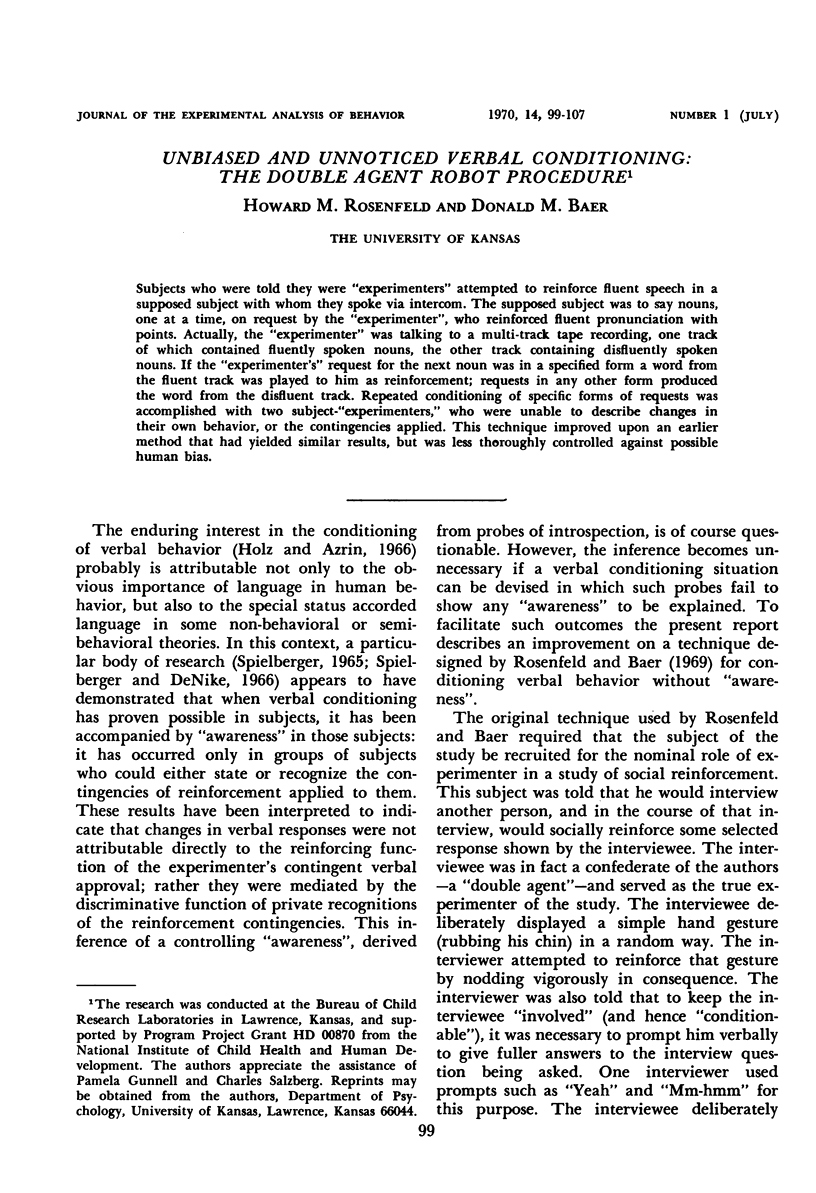
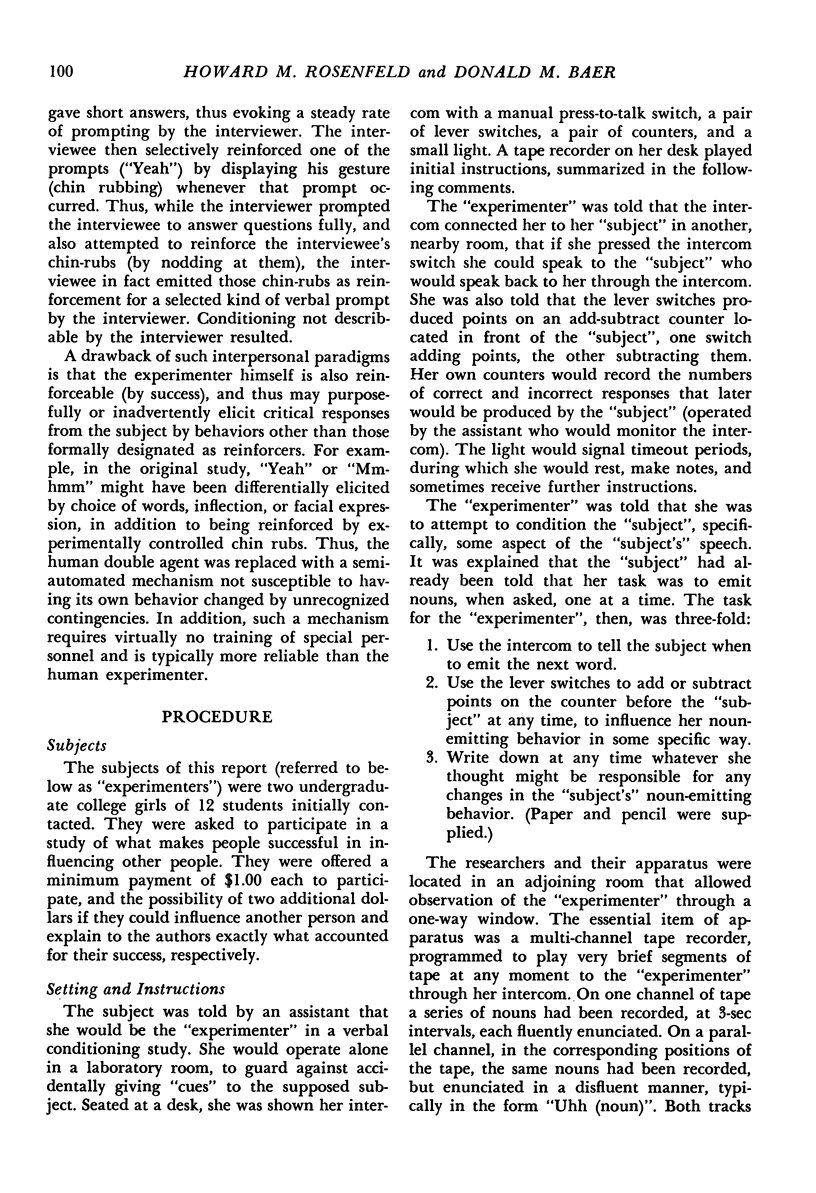
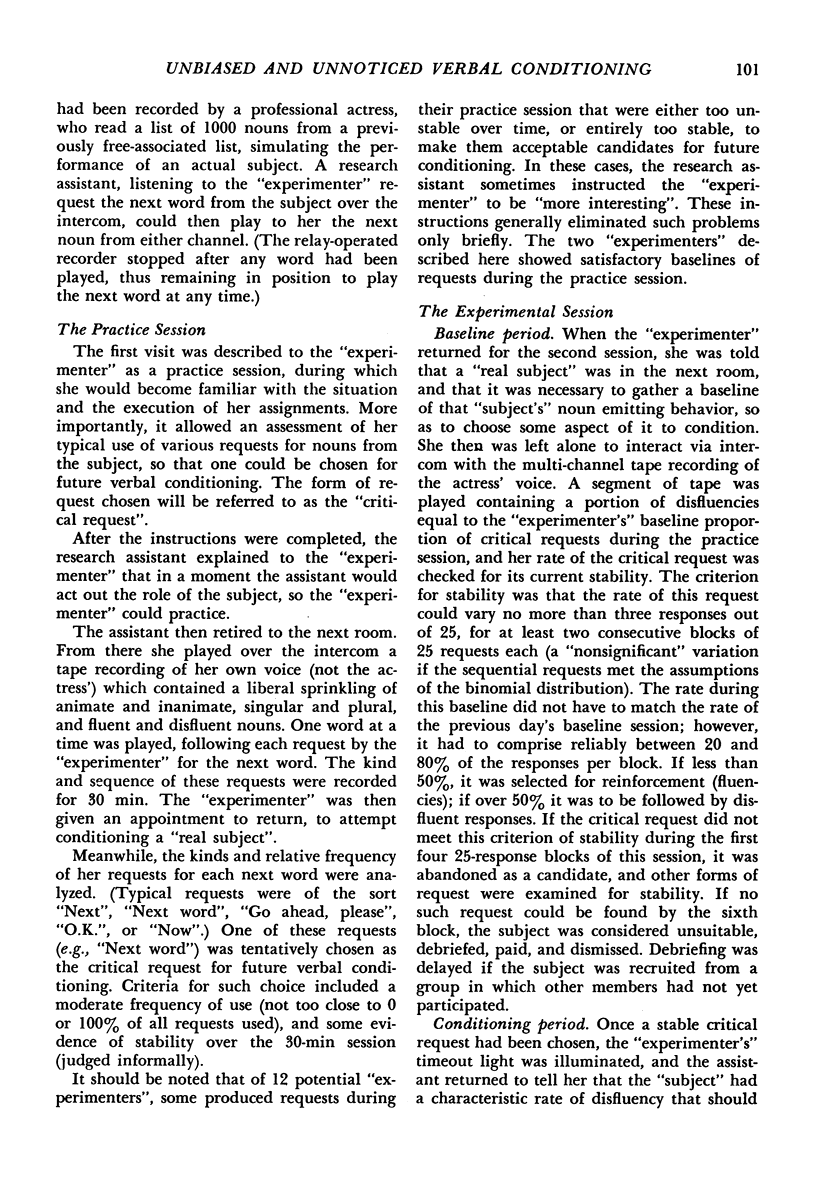
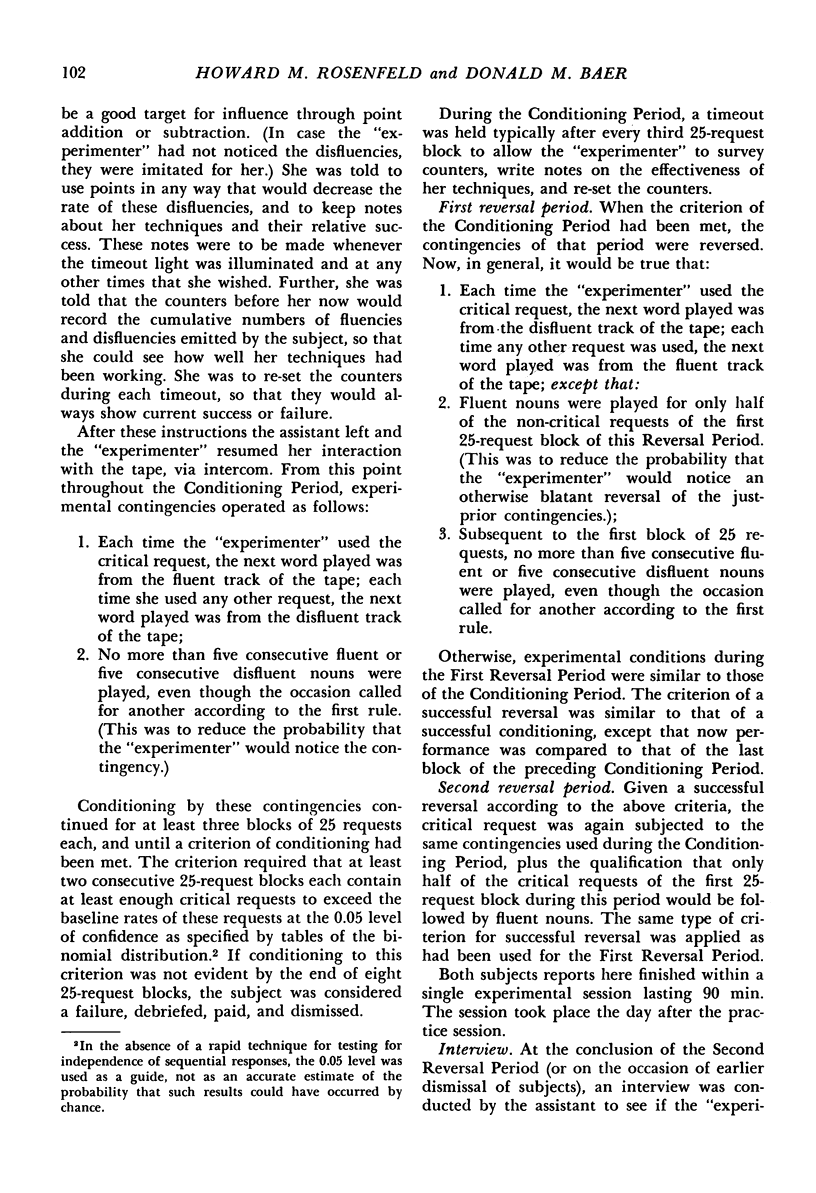
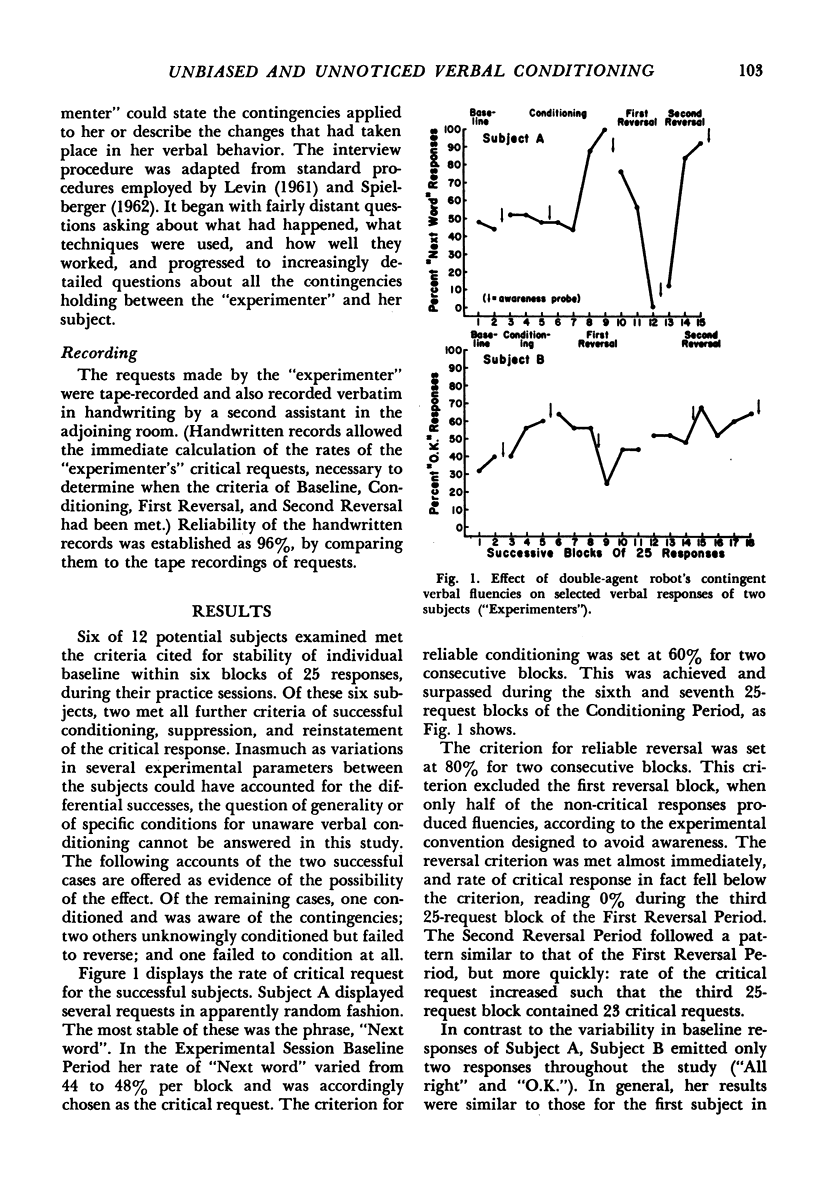
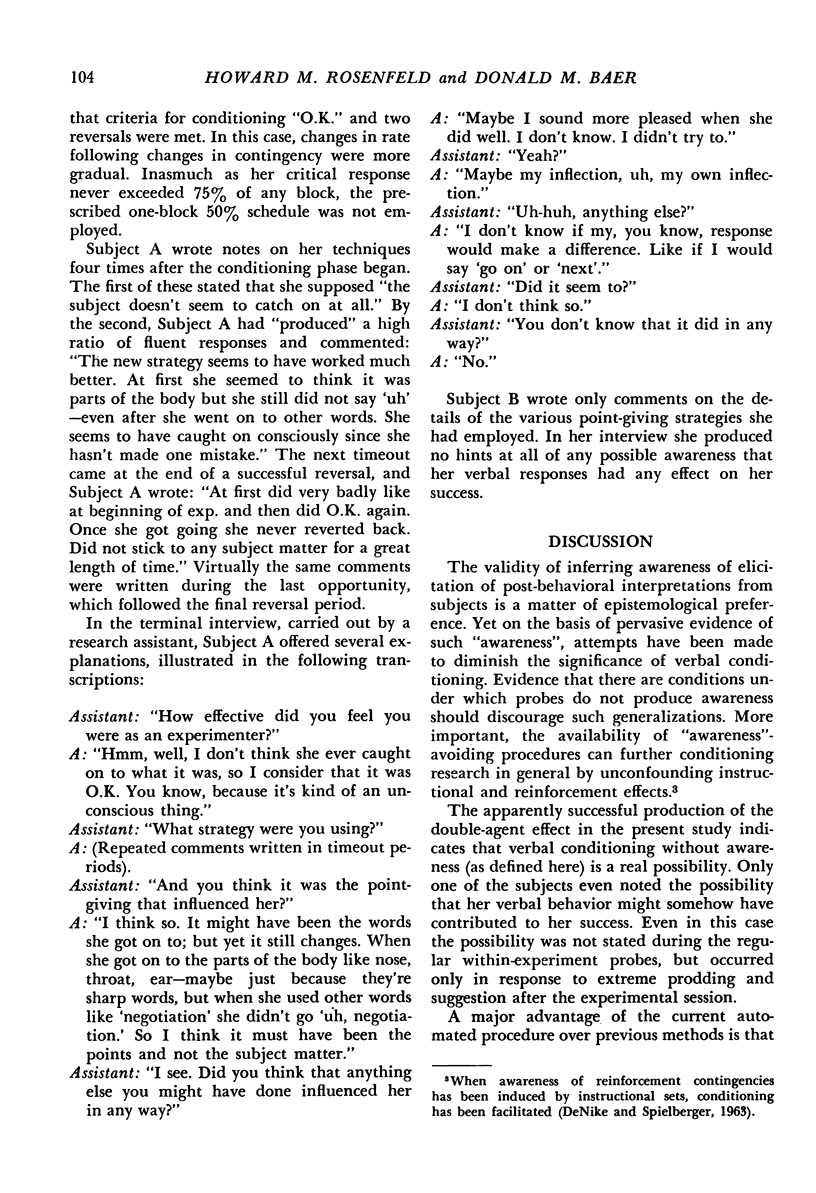
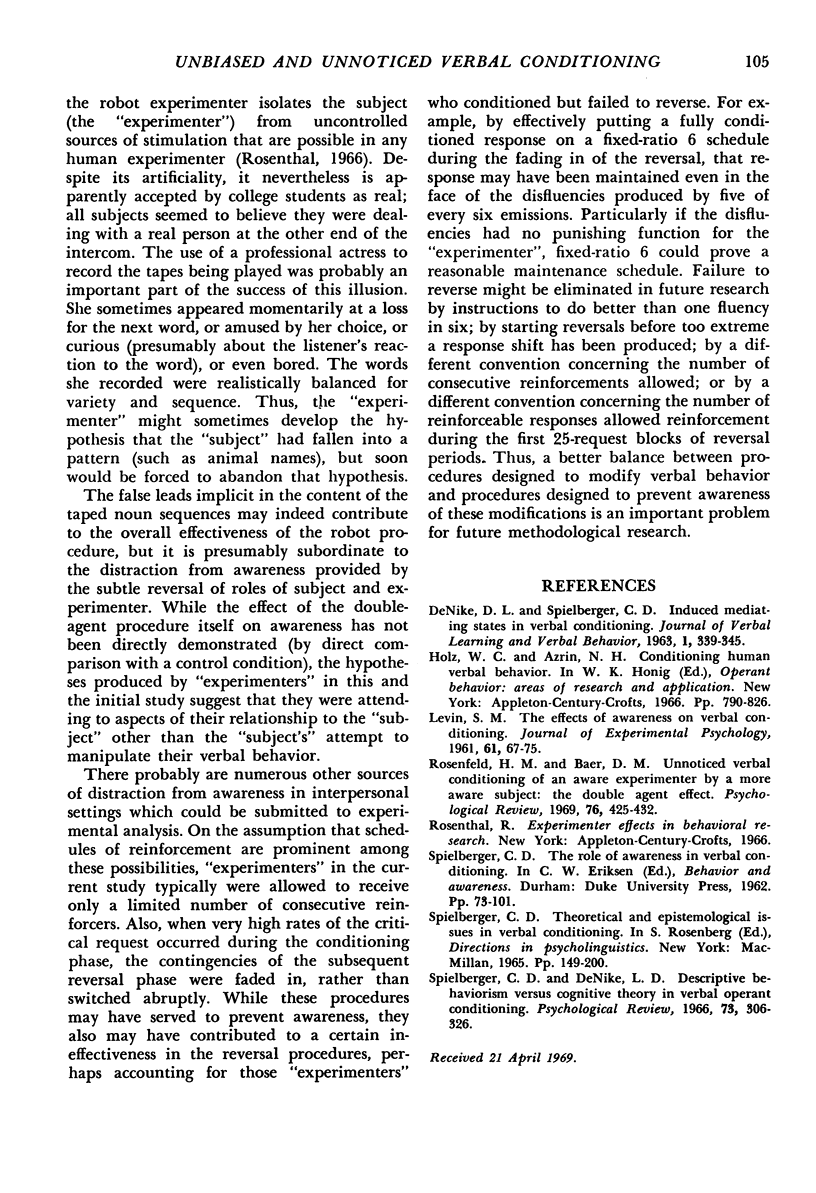
Selected References
These references are in PubMed. This may not be the complete list of references from this article.
- LEVIN S. M. The effects of awareness on verbal conditioning. J Exp Psychol. 1961 Jan;61:67–75. doi: 10.1037/h0047321. [DOI] [PubMed] [Google Scholar]
- Spielberger C. D., DeNike L. D. Descriptive behaviorism versus cognitive theory in verbal operant conditioning. Psychol Rev. 1966 Jul;73(4):306–326. doi: 10.1037/h0023454. [DOI] [PubMed] [Google Scholar]


